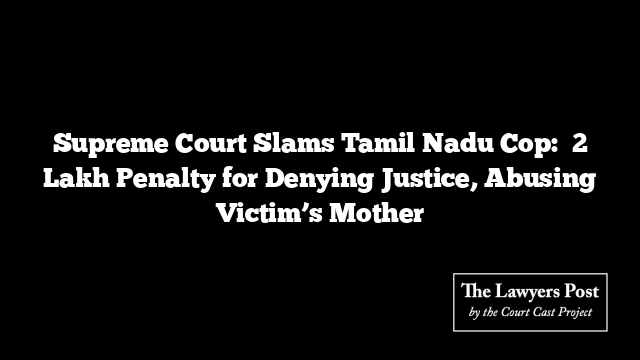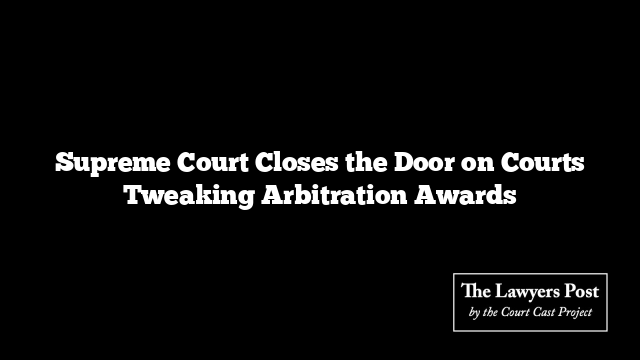In a stinging reminder that dignity is not optional at a police station, the Supreme Court has upheld a ₹2 lakh compensation order against a Tamil Nadu police inspector who refused to register a citizen’s complaint — and, to make matters worse, hurled abusive language at the complainant’s mother.
The Court, unmoved by the inspector’s defense, made it clear: every citizen stepping into a police station carries with them an unshakable right to dignity, anchored firmly in Article 21 of the Constitution.
The case traces back to the Srivilliputhur police station, where a citizen, accompanied by his parents, sought to lodge a complaint about cheating and embezzlement involving ₹13 lakh. First, a sub-inspector turned them away, pushing the matter up the chain. Later, when they returned, Inspector Pavul Yesu Dhasan not only refused to register the FIR after hours of waiting but also reportedly used crude language against the complainant’s mother.
The Tamil Nadu State Human Rights Commission (TNSHRC) took a dim view of the incident, ordering ₹2 lakh compensation to the citizen — recoverable directly from the inspector. The Madras High Court stood by the decision. Now, so has the Supreme Court.
A Bench comprising Justices Abhay S. Oka and Ujjal Bhuyan minced no words. They described the inspector’s behavior as a blatant violation of fundamental rights, noting that simply walking into a police station should never mean surrendering one’s dignity.
“The facts of this case, to say the least, are shocking,” the Court remarked. “All that the respondent wanted was the registration of an FIR. The law is clear. As a senior officer, the petitioner should have immediately complied, not aggravated the situation with abusive language.”
The inspector’s argument — that even if he refused to file the FIR, it wasn’t a “human rights violation” — was firmly rejected. The Court emphasized that the Protection of Human Rights Act, 1993, clearly places the right to dignity at the heart of human rights law in India.
Finding no fault with the Human Rights Commission’s findings or the High Court’s ruling, the Supreme Court dismissed the inspector’s appeal.
The message from the top court was unmissable: when the public knocks at the doors of justice, they deserve not just hearing — but respect.





